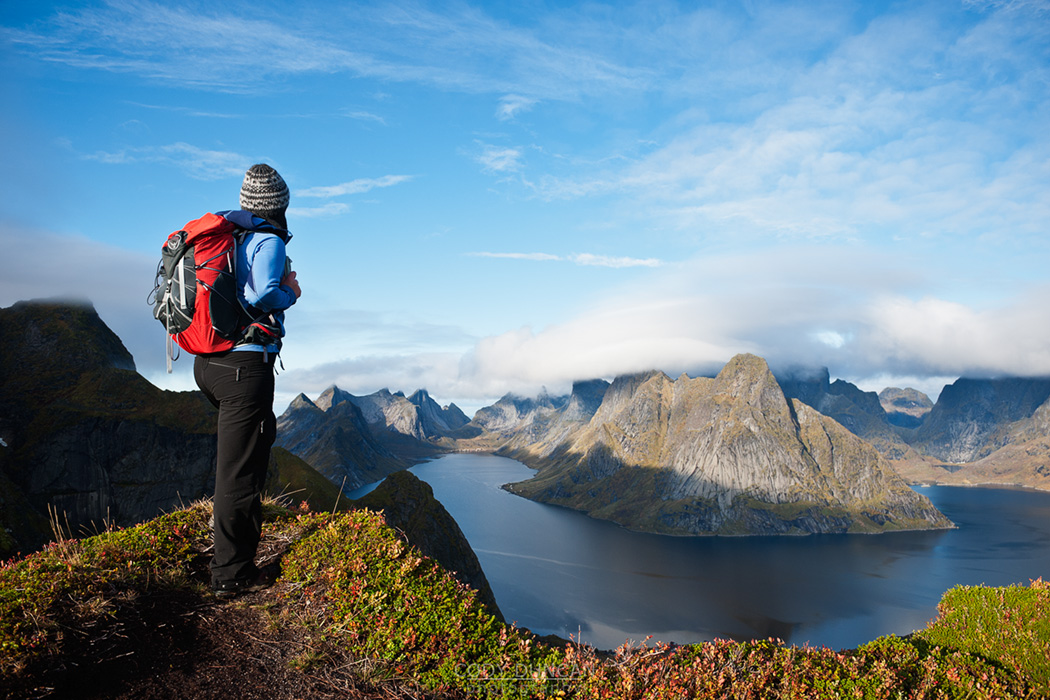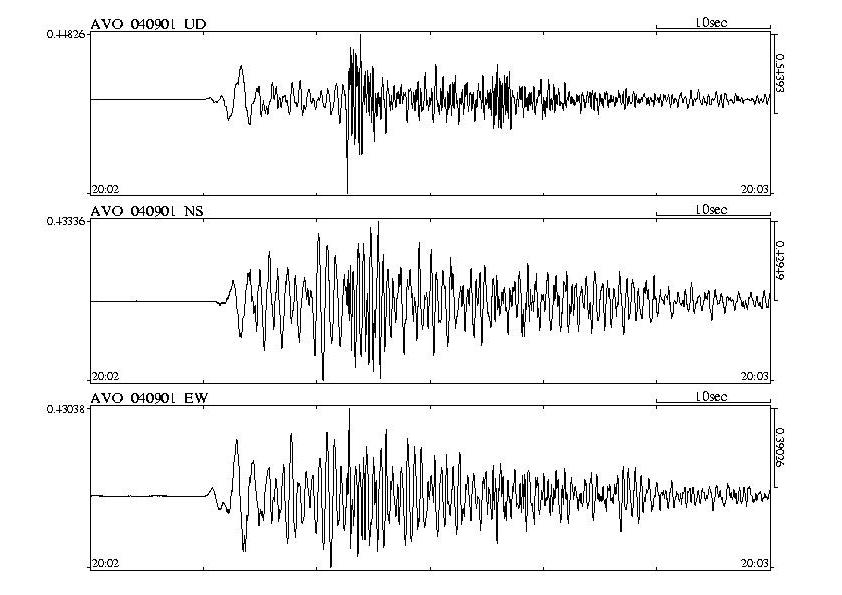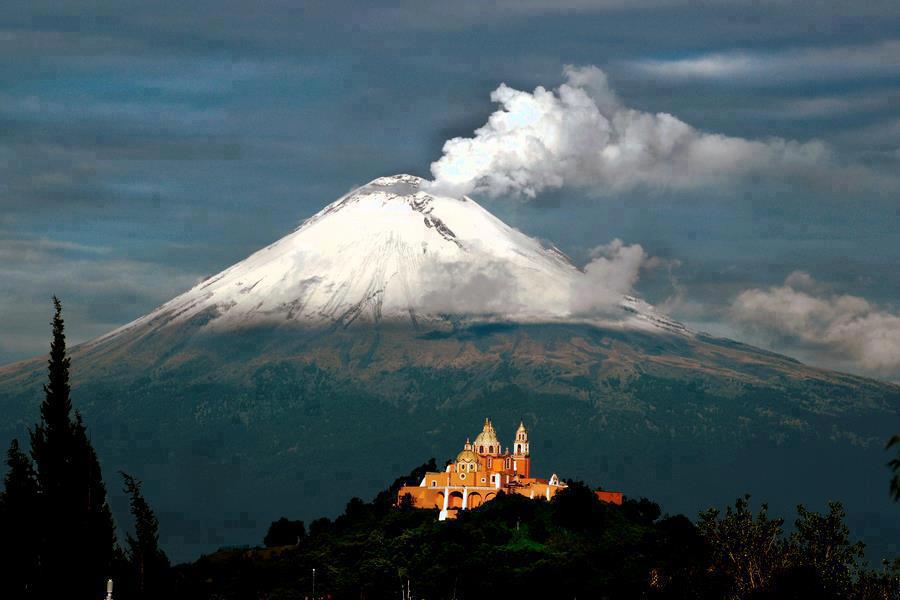Friday, 19 July 2013
Enjoy your Geolidays!
I hope you all have a great summer and see some great geology, wherever you are going. I'm going to Shetland and the Lofoten Islands.
Enjoy the holiday and come back to school ready for a year of exciting geology.
Who can hear a volcano scream?
Volcanoes are dangerous things; very beautiful, but nevertheless dangerous.
Four ways to be killed by a volcano
The risks posed by volcanic eruptions are such that predicting them is an important job for teams of geologists around the world. Volcanic gases, deformation of the ground, thermal anomalies are all used to give a picture of what's happening underneath a volcano but it is the seismic activity associated with magma movment that is the key to making useful predictions.
Recent research shows that the pitch of the vibrations caused by the magmatic earthquakes increases closer to an exlosive eruption. This might be an excellent indicator of an immininet eruption which could save people's lives or it could be a feature unique to Redoubt (the volcano in Alsaka studied for this research). The biggest problem with predicitng volcanoes is that each one of them is an individual and it is only when the geologists get to understand the individual quirks of each volcano that useful predictions can be made.
BBC News story
Thursday, 18 July 2013
Big nose, horn face!
One of the things I love about geology (amongst many!) is that we haven't discovered everything - there are still things to learn and to find. New species of dinosaurs always catch my eye, particularly when there is somethig striking or unusual about the new find.
Nasutoceratops titusi is a species of Ceratopsid dinosaur that roamed what is now Utah in the US during the late Cretaceous period (about 75,000,000 years ago). The 5 metre long, 2.5 tonne herbivore had the longest horns (and the biggest nose) of any species in this group yet discovered - despite plenty of competition from species like Styracosaurus.
Utah is a rich source of dinosaur fossils, such as Dinosaur National Monument. It sounds like there is more to find.....
BBC News story
Tuesday, 16 July 2013
Fracked off
In a very short period of time the discovery and explotation of shale gas has changed the world's energy balance. The US, once the largest importer of hydrocarbons is now starting to export Liquified Natural Gas (LNG). One of their customers is us; the gas will be imported (along with gas from Qatar) into the terminal at Milford Haven in Pembrokeshire.
We do need to ask ourselves some serious questions about our loss of energy independence and whether we need to use our own shale gas resources in places like Lancashire and here in the Vale of Glamorgan.
BBC News story
Monday, 15 July 2013
Have we peaked?
A geophysicist called M. King Hubbert back in 1956 predicted that oil production for any oilfield would take the form of bell curve from initial discovery through to maximum productivity and on to gradual decline. He accurately predicted that American oil production would peak in the early 1970s.
Hubbert Peak Theory
However, perhaps geologists need to revisit this idea as new technology to both find and produce oil has brought about the new discovery of oil reserves in places that had been thought to be exhausted of any useful oil such as California and Texas. Such discoveries, along with Shale gas, could go a long way to make the US energy independent. This would have a lot of knock-on effects for the economics and politics of the world.
How do you think that geologists have contributed to this advance in technology? Do you think that it's a good thing?
BBC News Story
Friday, 12 July 2013
Would you live here?
Tor Cottage is a beautiful house descibed by the estate agent as:
However, there is a small problem with the geology of the site as it is built on Permian red clays. The agent does give some further details:
The house has just been sold but, rather than the £400,000 that a house like this should have been worth, you could have snapped up a bargain for £33,500. It's only a shame that no-one is allowed to live in it permanently.
What do you think could be done to stabilise the geology of these cliffs? Is it inevitable that this house is doomed to fall into the sea?
BBC News story
Human induced earthquakes
Earthquakes under Basel
Recent research has shown that distant earthquakes combined with injection of waste water into the ground can set off relatively large earthquakes, even a 5.7 magnitude event in Oklahoma. Why then is this relevant to us? With our increasing need to find reliable sources of energy from geothermal sources or by fracking shale for gas, we are injecting a lot of water into the ground, particularly in the US so events like these may become more common. A lot of fuss was made about some very small earthquakes near Blackpool because of fracking activity.
Fracking Earthquakes - BGS report
The question is whether our need for energy is worth the inconvenience of increased seismic activity?
Thursday, 11 July 2013
End of a gold rush?
South Africa's gold mines have been a significant source of income for the country for many years, but the profits from this resource are coming under pressure. The geology is such that the gold resources are getting harder to find and to extract, the costs of extracting the gold are increasing and the price is reducing.
This could be disasterous for a country that relies on its resource sector to make money and for the jobs that it creates (though there have been violent protests about pay and conditions in South African mines). It does pose some interesting questions about where we are going to find future reserves of gold to satisfy the demand we have for the dense untarnishable mineral.
BBC News story
Wednesday, 10 July 2013
There's an App for that...
Predicting earthquakes is difficult, really difficult. Geologists in America have been working on ways to collect data from a wide area to enable predictions and possibly warnings to be made. Small seismometers plugged into internet routers have been used, with some success. The latest developments are to use smart phones to record and report data as they have positional data (from their built-in GPS) and shaking data (from their accelerometer). There are some problems with the system, such as telling the difference between someone bumping into a table and an earthquake and with the sensitiy of the accelerometer. These may create too many problems with false alarms in the US but there is huge potential for trying to make predictions in the developing world where they may lack infrastructure, but the use of mobile phones is very common.
Can you suggest any other ways that you think a smart phone could be used to help to manage the effects of hazards?
BBC News story
Red Cross Earthquake App
Popacatapetl goes Pop!
Popacatapetl in Mexico has been getting more active throughout 2013 and has now started preatic eruptions (steam) and some ash eruptions. This increased activity has worried some of the American airlines flying to Mexico City and has caused them to cancel flights. The Mexican authorities feel that the danger isn't that great and the airport reamins open.
This is an interesting reversal of attitudes during Europe's ash problem with the eruption of Eyjafjallajokull in Icleand in 2010 where airlines wanted to fly and aviation authorities banned flights. Perhaps it highlights the importance of the ongoing research into the safe level of ash for flying. What level of danger is acceptable?
BBC News story
Ash research
Video of vent
Exploring Mars
The most expensive piece of geological equipment is on the move. After already making some amazing discoveries about the geology of Mars the rover, Curiosity, is starting its 8km journey to the site of its primary mission. To get there it will have to avoid an area of sand dunes which could trap it.
Curiosity has already discovered conglomerates and cross bedding indicating water erosion and transport as well as unconformities that suggest processes operating over extended periods of time. Most recently it has been investigating water-lain shales, possibly from a lake deposit. It's main mission though is to find evidence for microbial life that may once have exisited on the planet.
Its journey will take months, possibly over a year if something interesting is found along the way. I think that it is one of the most exciting pieces of geological research that's happening at present; what do you think it may find evidence of?
BBC News story
NASA Curiosity site
Reinterpreting the Core
There are things we know about the Earth's Core and lots of things that we don't. We have a good idea about it's composition (from meteorites) and about its state of matter (from seismic evidence). Some new research from Spain suggests that there is more to the Core's structure than had been previously thought in that there are two different hemispheres to the Core that are differentiated by the structure of the iron in the core. The data also suggest that the core is moving.
What do you think about the evidence?
BBC News story
Subscribe to:
Posts (Atom)











